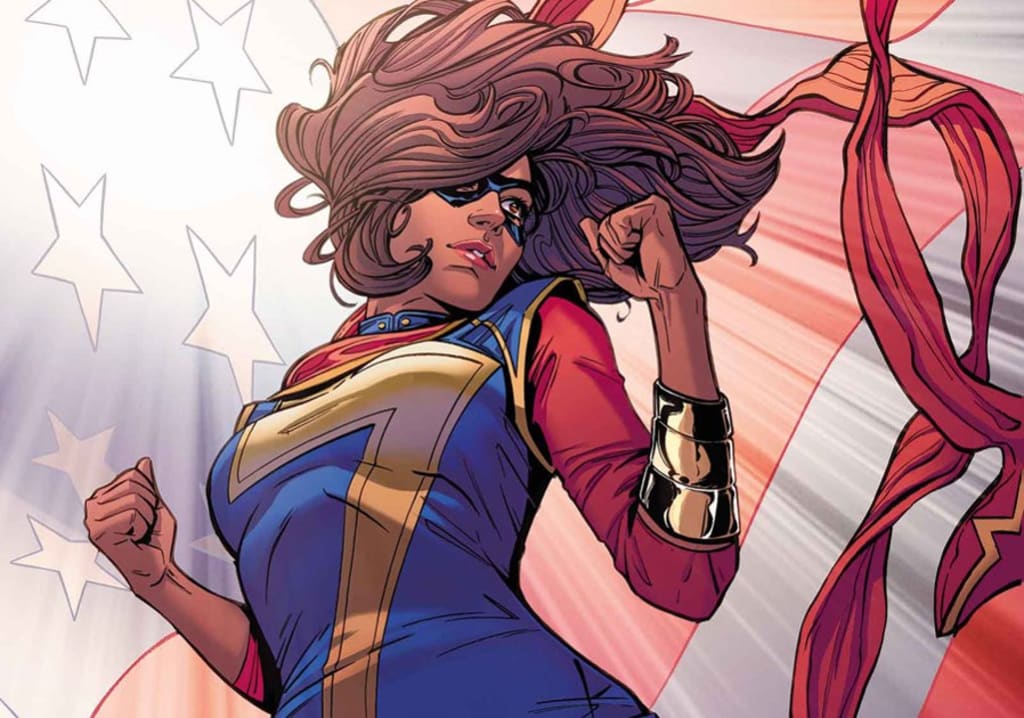
Marvel's been in the headlines a lot over the last week, and it's not exactly been the kind of attention the comic book publisher will have enjoyed. In the wake of disturbingly poor sales, Marvel held their first Retailer Summit of the millennium, and some of their key figures made unguarded remarks that, well, to say they've gone viral would be something of an understatement. The most controversial statement was by David Gabriel (Senior Vice President — Sales and Marketing):
"What we heard was that people didn't want any more diversity. [...] We saw the sales of any character that was diverse, any character that was new, our female characters, anything that was not a core Marvel character, people were turning their nose up against. That was difficult for us because we had a lot of fresh, new, exciting ideas that we were trying to get out and nothing new really worked."
The reaction has been fairly predictable. Some websites (and fans) have fumed that Marvel's missing the point entirely, and stood in defense of diversity. Others have seemed almost smug about it all, confident that their long-standing complaints have been vindicated. Unfortunately, here's the simple truth: We've all been missing the point.
The problem isn't with "diversity" at all. It's with the way Marvel has done diversity. That's proven when you look at two success stories: #MsMarvel and #BlackPanther. Ms. Marvel was a surprising success — as creator G. Willow Wilson observed, the bar was set low because the series was expected to only last a handful of issues. In fact, she even had a three-issue exit strategy! But, to Wilson's surprise, Ms. Marvel was a runaway success, and Marvel's been trying to find the next Ms. Marvel ever since.
They seem to have hit upon another winner with Ta-Nehisi Coates's Black Panther, a comic that delves into the politics and culture of Wakanda. Just the first issue was literally the best-selling comic of 2016; and in a year that featured DC's phenomenally-successful "Rebirth" initiative, that's pretty remarkable.
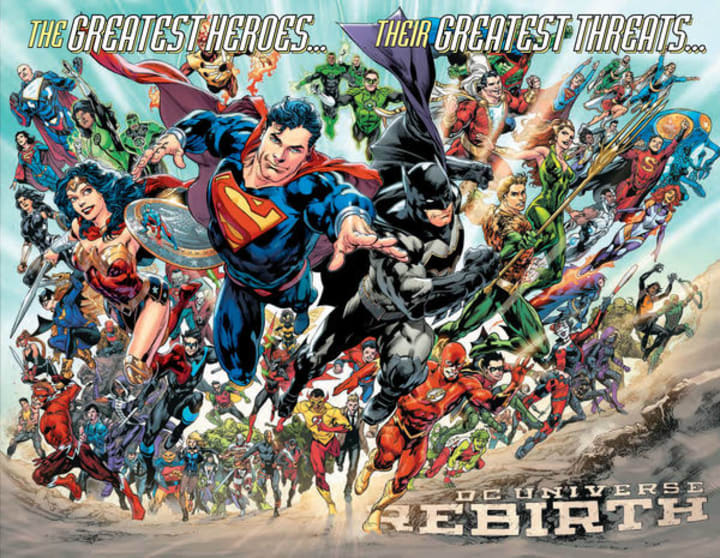
'Rebirth' has been a hit. [Credit: DC Comics]
Notice the pattern, though. G. Willow Wilson, a Muslim woman living in America, has successfully created a book centered around themes of social justice in the context of religious tradition. Ta-Nehisi Coates, meanwhile, is an award-winning writer and journalist whose work often focuses on the cultural issues of black masculinity. These two books don't just have diverse stars — they also have diverse creators.
And yet, for all I'm praising Black Panther, I can't help but feel that there's something badly wrong with the book. Why did Marvel need to look outside the comic book industry to find someone who could write it? Why didn't they find, and nurture, an up-and-coming black comic book writer instead? Ask that question, and you suddenly begin to realize that Marvel Comics as a company just isn't that diverse.
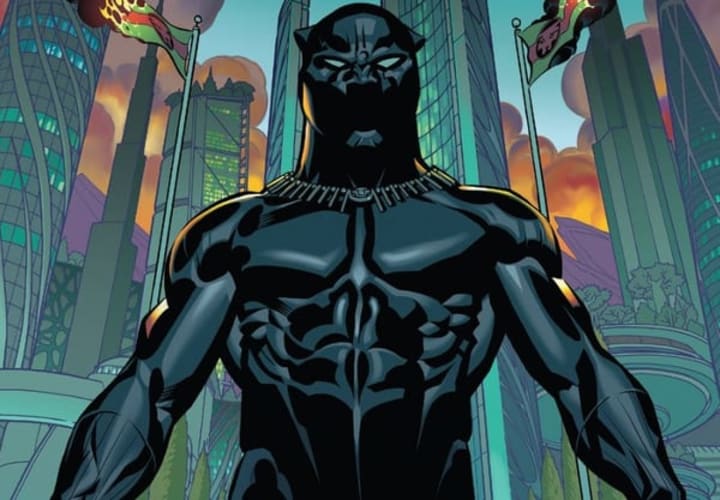
A fantastic debut! [Credit: Marvel Comics]
Two years ago, in the wake of their "Secret Wars" event, Marvel announced a promising new series: Blade the Hunter. This book had a simple pitch: No longer would Blade, the vampire hunter, walk alone. Instead, he'd learn that he has a teenage daughter, Fallon Grey — envisioned as the "anti-Peter Parker" — a popular kid who stumbled into the family business.
The idea was so intriguing that there were rumors Marvel TV was interested in developing it. Unfortunately, Marvel chose writer Tim Seeley, largely because of his skill when it comes to writing teenage characters. Marvel immediately had another scandal on their hands — why hadn't the company chosen a black writer?
Seeley, to his credit, stepped down. And here's the thing: Two years later, has Marvel found a black writer to helm Blade the Hunter? No. The idea's simply been shelved. It's another indicator of exactly the same problem — the company itself just isn't diverse.
The Result: Diversity Hasn't Been Done Well
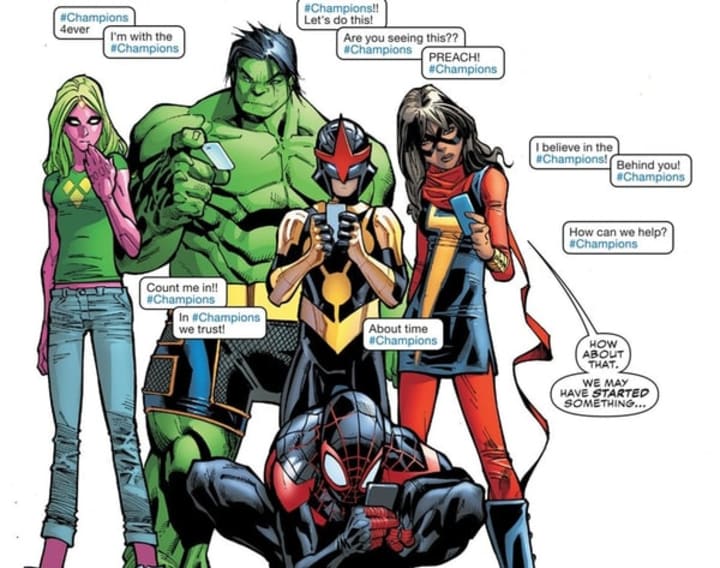
The Champions! [Credit: Marvel Comics]
Ms. Marvel and Black Panther have another thing in common: they both have a fully-fleshed-out world. In a must-read article on the subject of diversity, G. Willow Wilson — creator of Ms. Marvel — has pointed out that the quality of world-building is a core part of a book's success.
"There is a direct correlation between the quote unquote “diverse” Big 2 properties that have done well (Luke Cage, Black Panther, Ms Marvel, Batgirl) and properties that have A STRONG SENSE OF PLACE. It’s not “diversity” that draws those elusive untapped audiences, it’s *particularity.* This is a vital distinction nobody seems to make. This goes back to authenticity and realism."
Whether you're talking Harlem or Burnside, Wakanda or New Jersey, the most successful diverse books are those that create a world. And those worlds are more easily created by people who are already a part of them. After all, aren't writers so often told to "write what you know"? I'll grant that this can only go so far when it comes to comics — has any writer experienced cosmic ray bombardment; should only an astronaut write a story based on the moon?
When it comes to creating a world, a community, or even a nation around a character, it helps if you're writing what you know. Because Marvel lacks diversity as a company, it's had an impact on the quality of the product, with many of their "diverse" books lacking strong world-building.
The Legacy Hero Problem
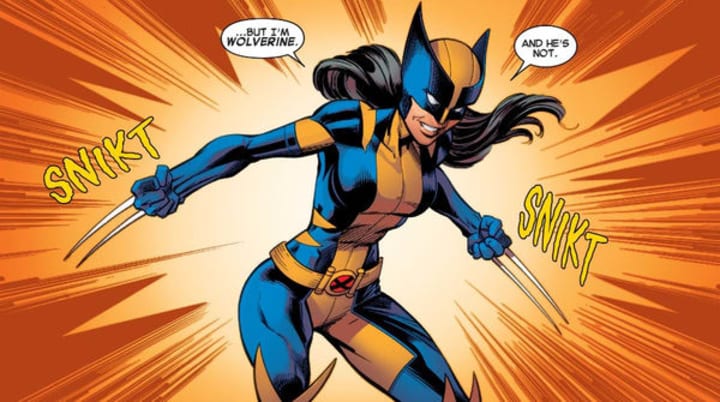
The All-New Wolverine. [Credit: Marvel Comics]
Another part of the problem, meanwhile, is that Marvel's push for diversity has been coupled with another approach: "Legacy Heroes." Under this approach, we've seen younger, more diverse characters take up the mantle of classic heroes such as Wolverine, the Hulk, Iron Man, Captain America and Ms. Marvel. When this has been done well, it's been a remarkable success.
Take Jason Aaron's The Mighty Thor, which has seen Jane Foster heft the hammer of Thor Odinson. Aaron spent two years building the story up to that point, so it was a largely organic development. Needless to say, this book is typically Marvel's second-best seller in a given month.
Unfortunately, other approaches haven't been quite so organic. The Totally Outstanding Hulk, for example, came out of nowhere in the aftermath of "Secret Wars." There was no build-up, there was no lead-in — it was a sudden, jarring, change to the status quo.
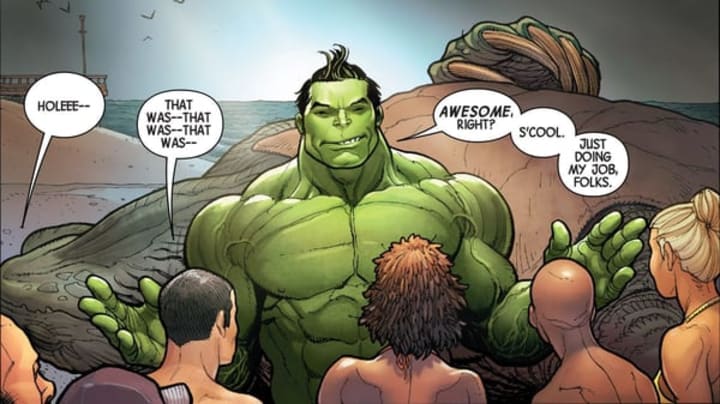
'The Totally Awesome Hulk.' [Credit: Marvel Comics]
Even G. Willow Wilson clearly isn't impressed by some of the character launches. As she observes:
"This is a personal opinion, but IMO launching a legacy character by killing off or humiliating the original character sets the legacy character up for failure. Who wants a legacy if the legacy is shitty?"
I'll leave fans to make their own judgment as to which characters she's referring, but in my view she's absolutely right. In some sad cases, the Legacy Hero has stepped up because the original character has been killed off, humiliated or corrupted. That's hardly a way to get fans on board.
All in all, I have to confess that I've been pretty disappointed by the way this whole "diversity debate" has been handled. In my view, both the media and the fans have completely missed the most important point: Diversity can't be forced, it can only be embraced. If Marvel truly wishes to become a powerful, diverse company, then it will do so first by shaping its creative teams — the products will speak for themselves.

A 'Women of Power' variant! [Credit: Marvel Comics]
About the Creator
Tom Bacon
A prolific writer and film fan, Tom has a deep love of the superhero genre.






Comments
There are no comments for this story
Be the first to respond and start the conversation.